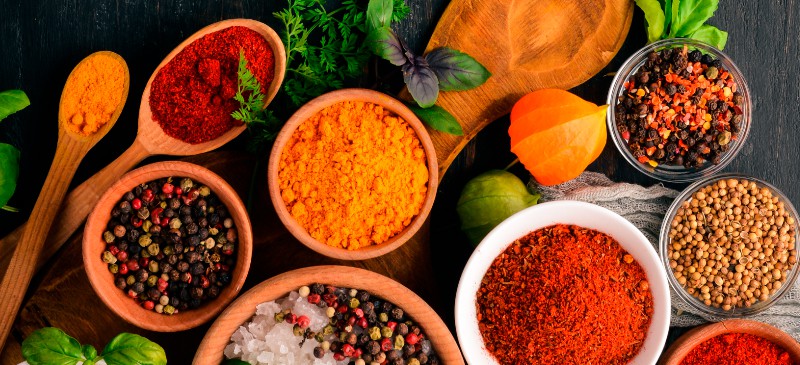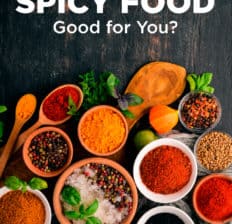This Dr. Axe content is medically reviewed or fact checked to ensure factually accurate information.
With strict editorial sourcing guidelines, we only link to academic research institutions, reputable media sites and, when research is available, medically peer-reviewed studies. Note that the numbers in parentheses (1, 2, etc.) are clickable links to these studies.
The information in our articles is NOT intended to replace a one-on-one relationship with a qualified health care professional and is not intended as medical advice.
This article is based on scientific evidence, written by experts and fact checked by our trained editorial staff. Note that the numbers in parentheses (1, 2, etc.) are clickable links to medically peer-reviewed studies.
Our team includes licensed nutritionists and dietitians, certified health education specialists, as well as certified strength and conditioning specialists, personal trainers and corrective exercise specialists. Our team aims to be not only thorough with its research, but also objective and unbiased.
The information in our articles is NOT intended to replace a one-on-one relationship with a qualified health care professional and is not intended as medical advice.
Is Spicy Food Good For You? Benefits + Healthiest Spicy Foods
May 7, 2022

Spicy food is featured in many different types of cuisines around the world, including Mexican, Indian, Latin, Caribbean, Thai and Chinese.
If you’re a fan of feeling warm and tingly inside when you eat spicy ingredients, you’ll be happy to know that many hot-tasting foods — such as peppers, wasabi, mustard seeds and turmeric — are actually very good for you.
What is the best spicy food to eat regularly? There are lots of different fiery ingredients that make healthy additions to your diet, including cayenne pepper, jalapeños and lesser known types in the West, such as gochujang.
Here’s something that may surprise you: Eating peppery foods frequently is associated with better weight management and reduced risk for heart disease — plus foods like hot peppers may even protect you from premature death.
Is Spicy Food Good for You? (Benefits)
A spice is any vegetable, seed, fruit, root or bark that it used for flavoring.
When we think of something being “spicy,” we’re often talking about peppers, but there are plenty of other plants that have a natural “kick,” including roots like ginger and horseradish.
Why is spicy food healthy?
Many spicy foods, such as cayenne and chili pepper, contain compounds called capsaicinoids, including the most researched and beneficial type: capsaicin. Capsaicinoids are known to have anti-inflammatory and metabolic-boosting properties.
Generally speaking, if any pepper is very spicy, it probably contains high amounts of capsaicin, since this compound is responsible for the feeling of heat in your mouth and belly.
Other than capsaicin, plants can taste spicy if they contain compounds such as:
- isothiocyanate (found in horseradish)
- gingerol (related to capsaicin and found in ginger)
- sinigrin (a type of glucosinolate found in mustard)
Depending on the specific ingredient, benefits of spicy food can include:
- Supporting normal circulation/blood flow and cardiovascular health, as well as decreasing risk for heart disease.
- Promoting a healthy metabolism and fat-burning. In fact, some studies show a link between spicy food consumption and less weight gain over time, since hot spices seem to increase energy (calorie) burning.
- Reducing appetite and increasing fullness. (It’s hard to eat a large amount of spicy food!)
- Enhancing digestive health by supporting the growth of friendly microbes in the gut microbiome.
- Providing antioxidants, including phenolic compounds, which fight oxidative stress.
- Reducing inflammation, including in the GI tract, and inflammation affecting the joints and arteries.
- Supporting immune function by exhibiting antibacterial activities.
- Possibly decreasing the risk for chronic diseases and risk factors, including high blood pressure, high LDL cholesterol, type 2 diabetes, heart attack and stoke.
- Lowering risks of certain GI cancers, including oesophageal and rectal cancer.
- Potentially reducing the risk for premature death. In one study, compared with adults who ate spicy foods less than once a week, those who consumed spicy foods six or seven days a week benefited from a 14% reduced risk for total mortality.
Is spicy food good for skin?
Although you probably don’t want to rub hot peppers directly on your skin, products that contain isolated capsaicin have been known to have numbing effects that provide relief from pain when applied to the skin.
Topical capsaicin products, including ointments and salves, can help treat osteoarthritis, diabetic nerve pain and other aches. These solutions can cause a slight burning sensation on the skin at first, but then they usually dull pain and inflammation.
Healthiest Spicy Foods
What healthy foods are spicy? Here’s a list of spicy foods and ingredients to try adding more of to your meals:
- Black pepper
- Paprika (made from dried and ground red peppers)
- Mustard (including mustard seed or powder and bottled types, like dijon mustard)
- Turmeric (the main ingredient used in curry sauces, usually along with pepper and paprika)
- Wasabi (also called Japanese horseradish)
- Horseradish
- Ginger root
- Chili peppers
- Poblano peppers
- Serrano peppers
- Jalapeno pappers
- Cayenne peppers
- Habanero peppers
- Thai chili peppers
- Szechuan peppercorns
- Sriracha (a sauce made of chilis, sugar, salt and vinegar)
- Gochujang, also called red chili paste (a paste made from red chili pepper flakes)
- Harissa (a paste made of garlic and oil and hot red peppers)
- Bhut jolokia (one of the hottest peppers of all!)
How to Add to Your Diet
Many spicy foods can be consumed either raw or cooked — plus they’re often dried, which helps preserve them.
You can either purchase whole peppers (such as chili peppers or jalapeños, which are found in most grocery stores) or dried pepper flakes, depending on your preference.
Also look for dried roots, such as turmeric and ginger, in the spice section of stores, along with a variety of mustards (the less ingredients the better).
Hot sauces are another easy way to increase the heat of meals. Just opt for hot sauces made with only several straightforward ingredients (no additives and dyes).
Use hot sauces and mustards sparingly, since they tend to be high in salt. The same goes for jarred mustards and horseradishes.
Worried that you’re sensitive to the effects of spices?
Your tolerance to their effects should increase over time, so start small, and consume more gradually, assuming you’re not suffering from any negative reactions. Pairing spicy ingredients with fat and sugar also reduces the sensation of their heat.
Here are some ideas for adding more heat to your diet:
- Add peppers, paprika and turmeric to omelets or eggs along with other veggies and your favorite cheese.
- Use spicy peppers, salsa, hot sauces and seasonings in tacos, fajitas and burritos.
- Make a black bean, corn and pepper salad.
- Try some peppers on top of homemade cauliflower pizza crust.
- Add your favorite peppers plus turmeric and paprika to chicken kabobs or steak kabobs.
- Use turmeric in a homemade turmeric latte (aka golden milk) or turmeric tea.
- Add ginger to herbal tea, stir-fries, juices and smoothies.
- Try chicken salad made with a mustard dressing.
- Use horseradish on fish or steak, in potato salad, or with deviled eggs.
Risks and Side Effects
Is eating spicy food ever bad for you? Some people can experience digestive issues or other reactions after consuming spicy foods, especially those prone to inflammatory bowel disease, acid reflux or irritable bowel syndrome.
Monitor your own reaction to different spices, and adjust accordingly. Be careful about how much spice you consume if you’re dealing with heartburn, diarrhea, stomach pains, morning sickness during pregnancy or nausea.
Conclusion
- What is the meaning of “spicy food”? A spicy ingredient is any vegetable, fruit, seed or bark that has a hot taste when you eat it.
- Many fiery ingredients contain the compound called capsaicin, which has fat-burning and anti-inflammatory effects. Some spicy foods also contain isothiocyanate, gingerol or sinigrin, which taste hot.
- Is spicy food good for you? Yes! Assuming it doesn’t cause you indigestion, spices can help prevent obesity or weight gain, rev up your metabolism, improve your gut microbiome, and possibly lower pain, blood pressure and cholesterol levels.
- Healthy spicy foods to add to your diet include cayenne, chili pepper, black pepper, paprika, turmeric, currie sauces, jalapeños, ginger and horseradish.





